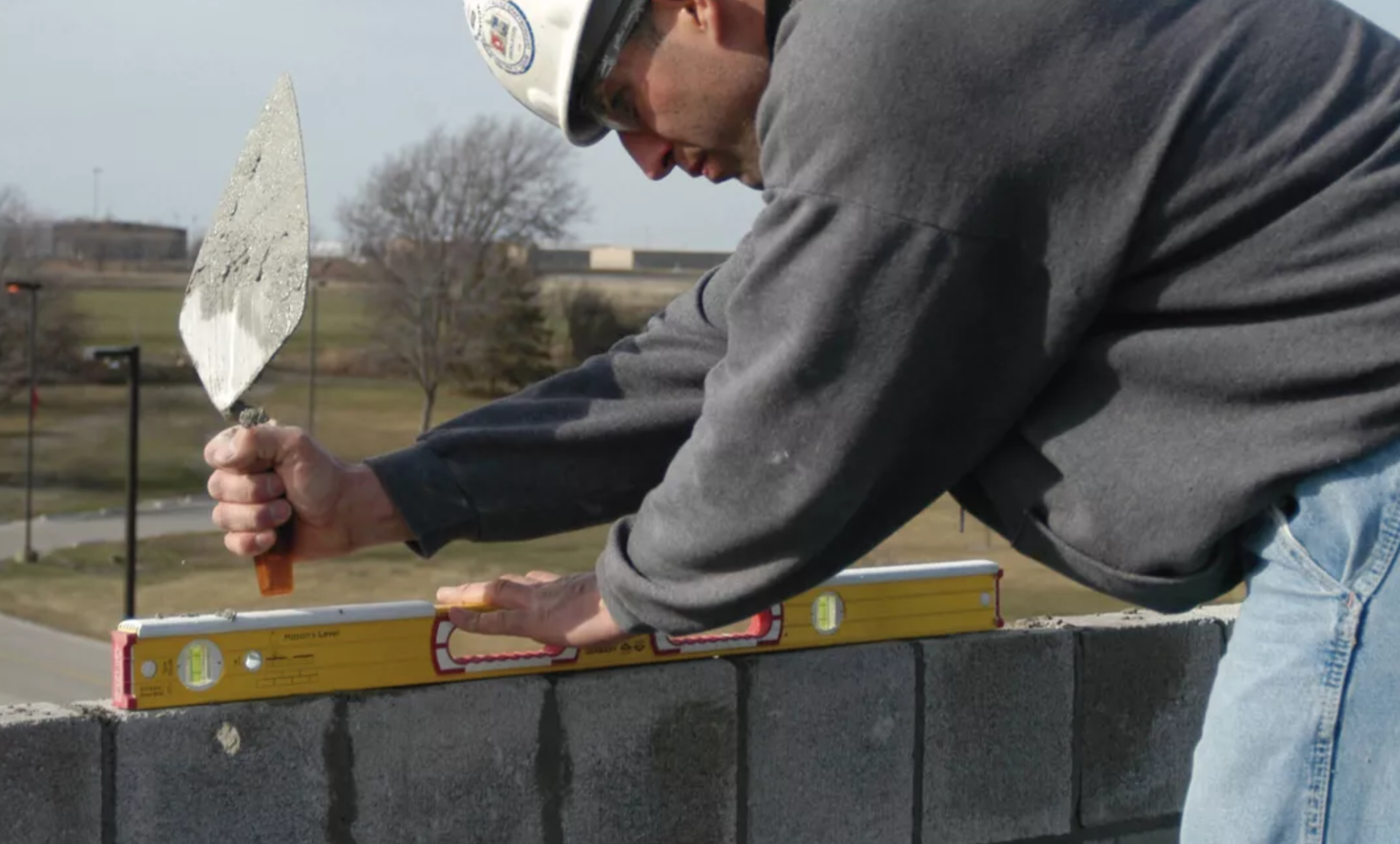June 4, 2024
Welcome to the world of bricklaying! Before you dive into the intricate techniques, let's lay down the foundation for success with the essential tools of the trade. Think of it as building a house – you wouldn't start with the roof, right? Let's explore these tools that will elevate your bricklaying game.
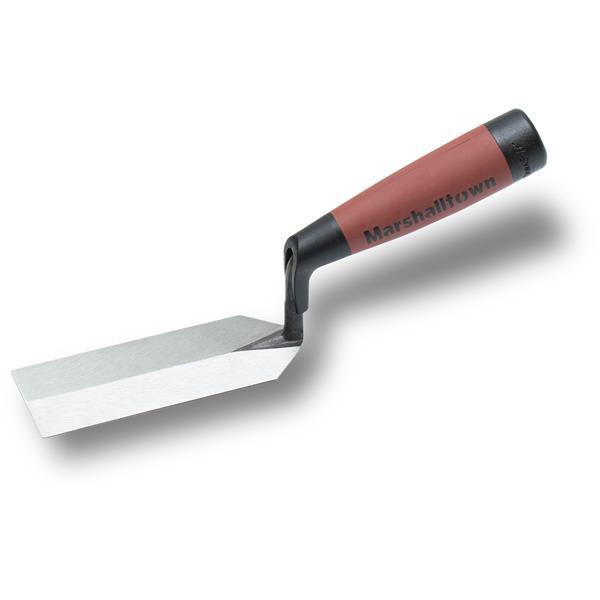
The Margin Trowel: Precision in Your Hands
The margin trowel is your trusted companion for spreading and shaping mortar with precision. Featuring a rectangular-shaped blade, typically measuring around 5 to 6 inches in length and 2 inches in width, it ensures smooth and even mortar application. Wielded with finesse, it's akin to a conductor leading an orchestra. Its versatility makes it indispensable for various tasks, whether you're applying mortar to small areas, spreading adhesive, or cleaning excess mortar from bricks or stones.
Another common brick trowel is the Philadelphia brick trowel, distinguished by its tapered, pointed blade, which offers several advantages in bricklaying tasks. This design allows for precise control when spreading mortar and laying bricks, enabling masons to achieve accurate placements and consistent joint thickness. The pointed tip of the blade is particularly useful for navigating tight spaces and corners, ensuring thorough mortar application even in confined areas. Additionally, the versatility of the Philadelphia trowel extends to tasks beyond mortar application, such as shaping bricks and finishing joints. Its pointed blade enables masons to manipulate mortar and bricks with finesse, facilitating intricate detailing and adjustments as needed.
The London brick trowel features a rectangular-shaped blade with a flat edge, offering distinct benefits for bricklaying projects. The larger surface area of the blade allows for more mortar to be held and spread with each scoop, increasing efficiency in mortar application. This feature is particularly advantageous when working on larger bricklaying projects or laying bricks over expansive areas, as it minimizes the need for frequent reloading of mortar. Furthermore, the flat edge of the London trowel is well-suited for achieving straighter joints and smoother finishes on brickwork. By providing a consistent surface for mortar application, the flat edge helps masons maintain uniformity in joint thickness and brick alignment, resulting in aesthetically pleasing and structurally sound brick structures.
In summary, while both the Philadelphia and London brick trowels serve essential roles in bricklaying, each offers unique features tailored to specific tasks and preferences. The precision and versatility of the Philadelphia trowel make it ideal for intricate detailing and precise mortar application, while the efficiency and consistency provided by the London trowel's larger blade surface and flat edge are well-suited for spreading mortar over larger areas and achieving straighter joints. Ultimately, masons may choose between these trowel types based on the demands of their projects and their individual comfort and familiarity with each tool.
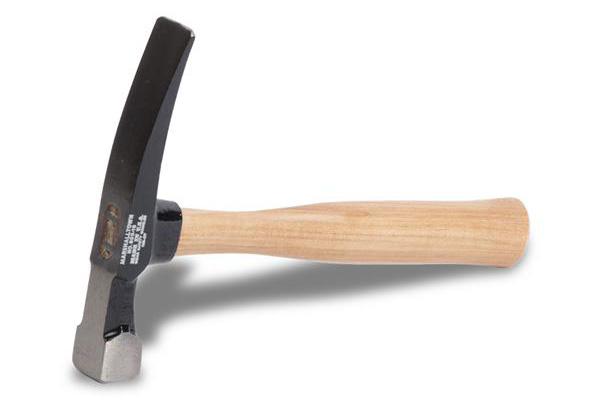
The Brick Hammer: Shaping Bricks with Ease
Also known as a mason's hammer, the brick hammer is your go-to tool for cutting and shaping bricks or stones. With a flat face for setting bricks and a chisel end for shaping, it allows you to sculpt bricks to fit precisely. Each strike chips away excess material or splits them along a scored line. Its sturdy construction ensures durability in demanding construction environments, making it indispensable for precision work.
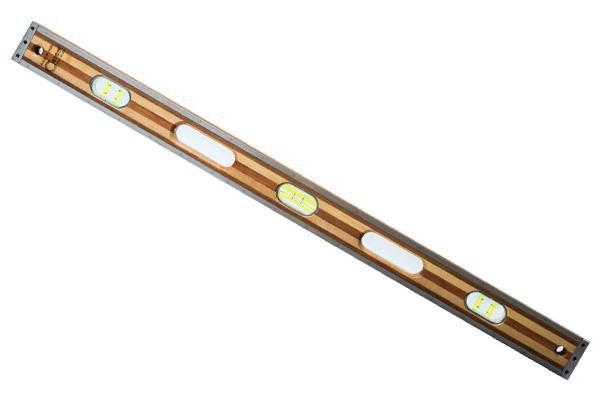
The Level: Ensuring Straightness and Alignment
No bricklayer's toolkit is complete without a trusty level by their side. Whether you're laying bricks or blocks, the level ensures each element is perfectly straight and level. It serves multiple functions: ensuring horizontal alignment crucial for maintaining structural integrity and aesthetic appeal, and vertical plumbness, ensuring walls or structures are straight and true without leaning or tilting. By placing the level across multiple bricks, you can detect any high or low spots, ensuring the surface of the brickwork is even and uniform.
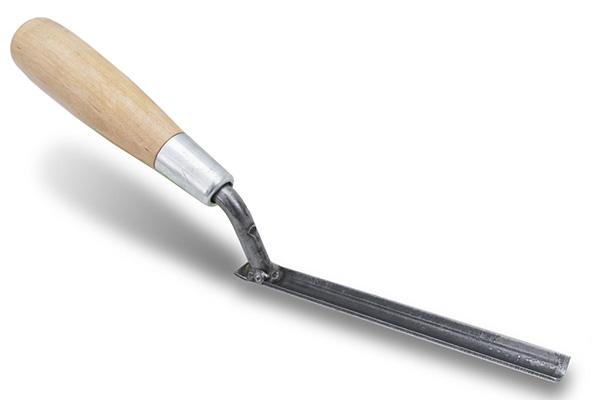
The Jointer: Finishing Touches for Clean Joints
Don't underestimate the humble jointer. It's essential for creating clean and uniform joints between bricks or stones, adding the finishing touches to your brickwork. After laying bricks or stones, mortar is typically applied between them to fill gaps and create a solid bond. The jointer trowel is used to smooth and finish these mortar joints, ensuring they're flush with the surface of the bricks and have a consistent appearance. Jointer trowels come in various shapes and sizes, allowing masons to create different joint profiles, whether it's concave, convex, V-shaped, or flush joints, each serving specific purposes in terms of water resistance, strength, or visual appeal.
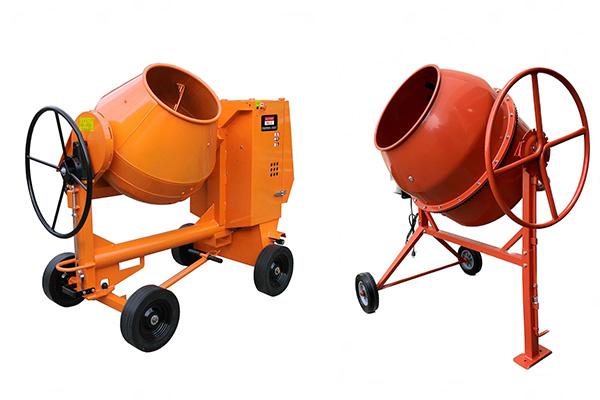
The Mortar Mixer: Streamlining Your Mixing Process
Mixing mortars by hand is a thing of the past. Embrace the mortar mixer for efficiency and consistency, a true game-changer in brick masonry and construction projects. The mortar mixer ensures thorough mixing of mortar ingredients, such as cement, sand, and water, resulting in a consistent and uniform mixture. This consistency is essential for achieving uniformity in the mortar's strength, color, and workability. By automating the mixing process, mortar mixers reduce the need for manual labor and physical exertion, saving time and effort while providing greater control over mixing parameters. Whether it's adjusting mixing speed or duration, mortar mixers offer flexibility to customize mortar mixtures according to specific project requirements.
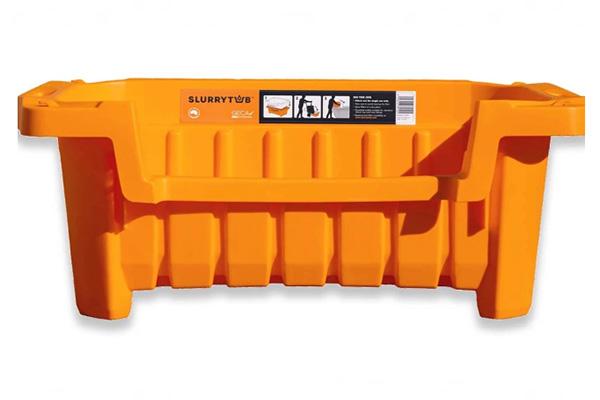
Clean Up: Environmental Waste Disposal
A useful tool to use at the end of the day while cleaning gear is the Slurry Tub. The Slurry Tub is a heavy-duty recyclable plastic tub, lined with a biodegradable paper filter. The system captures and filters the wet trade waste leaving visibly clear water to drain within the designated washout areas or be recycled. When dry enough, simply dispose of the hardened waste, along with the biodegradable filter into the work site skip or other approved disposal method.
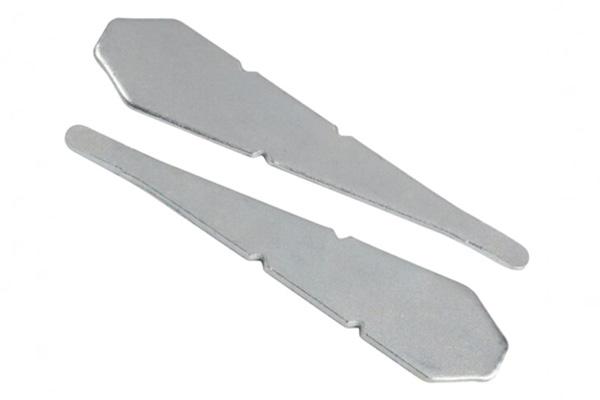
The Line and Pins: Guiding Lights for Straight Courses
Line pins, twigs, and blocks are indispensable for ensuring straight and level courses of bricks or blocks, providing a reliable reference point for accuracy and precision. Line pins, typically made of durable steel or aluminum, anchor the mason's line at each end of the wall, ensuring it remains taut and straight. Line twigs, small T-shaped tools, hold the mason's line in place between courses, maintaining alignment as bricks or blocks are laid. Line blocks, larger and typically made of wood, plastic, or metal, provide additional stability and support for the mason's line, particularly on larger or more complex projects. Together, these tools work in tandem with the mason's line to ensure straight and level construction.
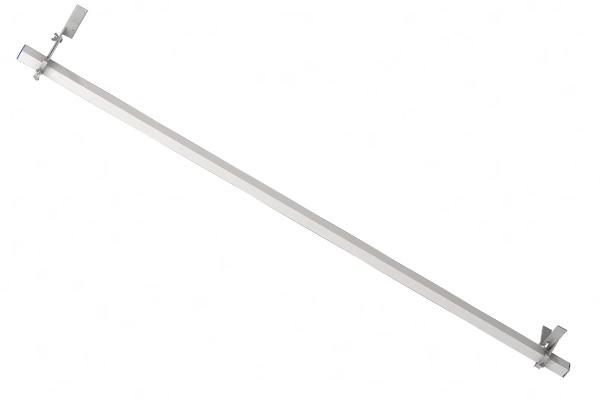
The Story Pole: Consistency in Height and Layout
A story pole is a long, straight piece of wood or metal marked with measurements and reference points, ensuring consistent course heights and layout in bricklaying projects. Before laying bricks or blocks, masons use a story pole to plan the wall layout and determine the placement of key features such as windows, doors, and architectural details. By marking these elements on the story pole, masons can visualize the overall design and ensure proper alignment and spacing. Throughout construction, the story pole aids in checking for levelness and plumbness, providing a consistent reference point for laying courses of bricks or blocks. Its use streamlines the bricklaying process, minimizing errors and waste while ensuring accuracy and precision in construction.
As you embark on your journey as a bricklayer, remember that these tools are more than mere instruments – they are extensions of yourself, helping you shape the world one brick at a time. Embrace them, master them, and let them guide you on your path to greatness.
Find Your Store
IA | Des Moines
-
4601 NW Urbandale Drive, Suite 112
Urbandale, Iowa 50322
- Phone: 515-219-7842
- Hours: 07:30 am - 04:00 pm
IL | Bridgeview
-
7542 West 73rd Street
Bridgeview, Illinois 60455
- Phone: 708-607-9430
- Hours: 07:00 am - 03:00 pm
IL | Champaign
-
3200 W. Springfield
Champaign, Illinois 61822
- Phone: 217-439-4348
- Hours: 07:00 am - 03:30 pm
IL | Chicago
-
850 W. Pershing Road
Chicago, Illinois 60609
- Phone: 773-923-3771
- Hours: 07:00 am - 03:00 pm
IL | Des Plaines
-
821 Seegers Road
Des Plaines, Illinois 60016
- Phone: 847-860-6806
- Hours: 07:00 am - 03:00 pm
IL | Naperville
-
1760 North Aurora Road
Naperville, Illinois 60563
- Phone: 630-864-5711
- Hours: 07:00 am - 03:00 pm
IL | New Lenox
-
1300 West Maple Street
New Lenox, Illinois 60451
- Phone: 815-680-2971
- Hours: 07:00 am - 03:00 pm
IL | Schaumburg
-
409 West Wise Road
Schaumburg, Illinois 60193
- Phone: 847-860-6242
- Hours: 07:00 am - 03:00 pm
IL | Springfield
-
800 South 9th Street
Springfield, Illinois 62703
- Phone: 217-492-8544
- Hours: 07:30 am - 03:00 pm
IN | Carmel
-
430 West Carmel Drive
Carmel, Indiana 46032
- Phone: 317-597-8767
- Hours: 07:30 am - 04:00 pm
IN | Chesterton
-
1631 Pioneer Trail
Chesterton, Indiana 46304
- Phone: 219-250-9859
- Hours: 07:30 am - 04:00 pm
IN | Evansville
-
3401 Mt Vernon Ave
Evansville, Indiana 47712
- Phone: 812-993-4472
- Hours: 08:00 am - 04:00 pm
IN | Fort Wayne
-
3000 N Wells St
Fort Wayne, Indiana 46808
- Phone: 260-264-7468
- Hours: 07:30 am - 04:00 pm
IN | Indianapolis Edgewood North
-
5007 W 96th St
Indianapolis, Indiana 46268
- Phone: 317-751-2334
- Hours: 08:00 am - 04:30 pm
IN | Indianapolis Epler Ave
-
1580 E Epler Ave
Indianapolis, Indiana 46227
- Phone: 317-779-1670
- Hours: 07:30 am - 04:00 pm
IN | Indianapolis Shelby St
-
5518 Shelby Street
Indianapolis, Indiana 46227
- Phone: 317-779-3090
- Hours: 08:00 am - 04:30 pm
IN | Lafayette
-
1799 North 9th Street
Lafayette, Indiana 47904
- Phone: 765-476-0452
- Hours: 07:30 am - 04:00 pm
IN | South Bend
-
918 Oliver Plow Ct
South Bend, Indiana 46601
- Phone: 574-777-0167
- Hours: 07:30 am - 04:00 pm
MD | Baltimore
-
4150 Hayward Avenue
Baltimore, Maryland 21215
- Phone: (410) 220-2363
- Hours: 07:00 am - 04:00 pm
MD | Upper Marlboro (DC)
-
8315 Old Marlboro Pike
Upper Marlboro, Maryland 20772
- Phone: (301) 701-5160
- Hours: 07:30 am - 04:00 pm
MI | Waterford
-
6315 Highland Road
Waterford, Michigan 48327
- Phone: 248-392-3980
- Hours: 07:00 am - 03:30 pm
MI | Whitmore Lake
-
6556 Whitmore Lake Rd
Whitmore Lake, Michigan 48189
- Phone: 734-212-8454
- Hours: 08:00 am - 04:00 pm
MN | Bloomington
-
520 West 86th Street
Bloomington, Minnesota 55420
- Phone: 952-206-5490
- Hours: 07:30 am - 04:00 pm
NE | Omaha
-
13801 Industrial Road
Omaha, Nebraska 68137
- Phone: 402-235-5567
- Hours: 07:30 am - 04:00 pm
PA | Reading
-
200 Hartman Road
Muhlenberg, Pennsylvania 19605
- Phone: 610-686-7711
- Hours: 07:00 am - 03:30 pm
VA | Manassas
-
7413 Cushing Road, Suite 100
Manassas, Virginia 20109
- Phone: 703-263-8057
- Hours: 07:00 am - 03:30 pm

